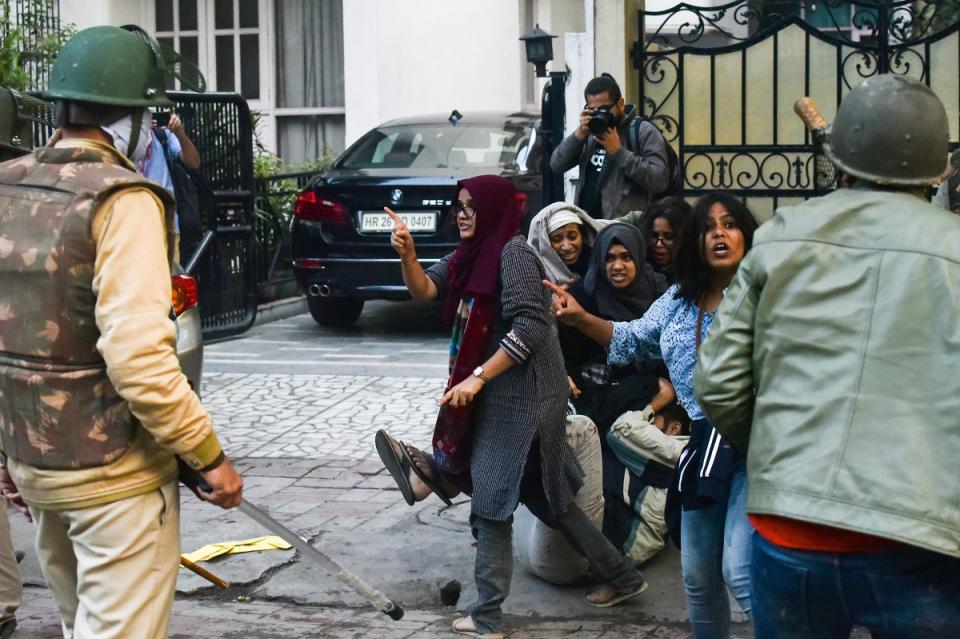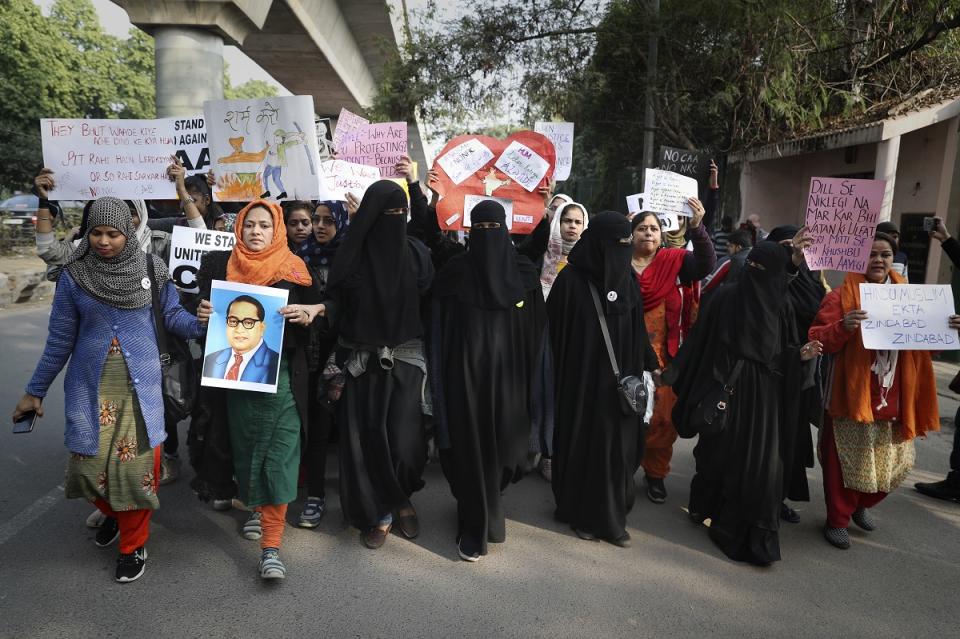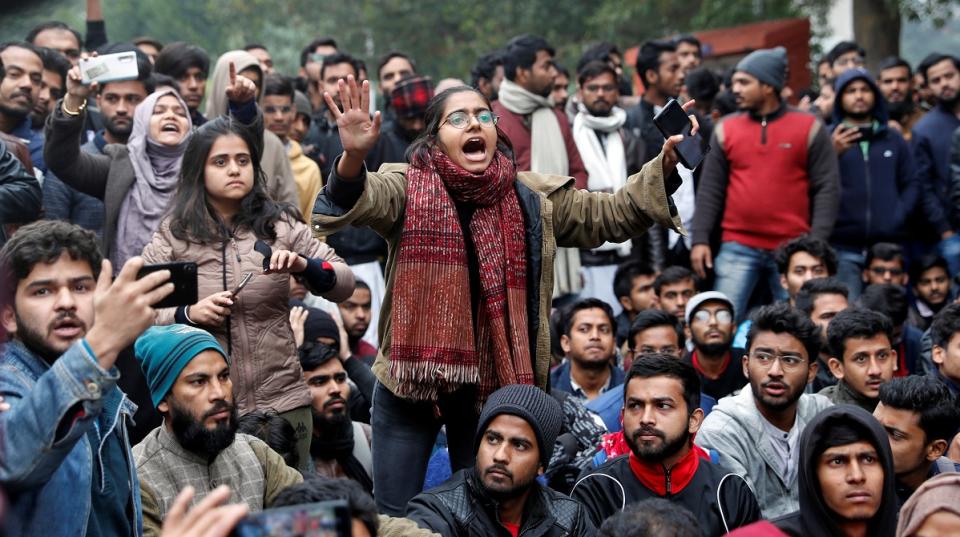As Anti-CAA Protests Rage On, Women Emerge as Symbols of Resistance Across India
In the history of mainstream social-political-related protests in India, women have largely played a less prominent role. The discourse has, thus far, been mainly dominated by men. But that’s changing.
Indeed, as the controversial Citizenship Amendment Act (CAA) triggered a slew of protests across the country, women have taken centre stage as the very symbols of resistance, with many leading the agitations against the legislation that offers only non-Muslim religious minorities from select countries a path to citizenship.
How to rescue a victim during a #lynching incident.
Real life demo by women students of #Jamia
pic.twitter.com/cHavlAtxmH— Natasha Badhwar (@natashabadhwar) December 15, 2019
Earlier this week, videos and images of three women standing up to the police to protect a male protestor who was being lynched by the cops went viral.
The three women – Ladeeda Farzana, Ayesha Renna, and Chanda Yadav – are students of the Jamia Millia Islamia University, one of the first universities where anti-CAA protests broke out in the national capital.
An image of Ayesha pointing her finger at the police officers and of the three women saving their male friend has since become the very symbol of the fearless Indian women of today – ready to stand up in defiance against brutality of any kind and unafraid to raise their voice even in the face of great personal peril.

“The image is itself significant in multiple ways. The fierce anger and the fearlessness reflected in her actions as she stood there pointing her finger at the police to wave them off from harming her friend shows that Indian women no longer want to conform themselves to playing second fiddle in any social crisis,” says Asra Naaz Siddiqui, an MA student from Jamia Millia Islamia, who was part of the protests that erupted at the University.
The viral video has since influenced many women, especially Muslim women whose voices have largely been missing from political narratives, to take to the streets and protest. To be sure, the first protest at Jamia started from the women’s hostel, with the women calling for and organising the protest. This call was then answered in large numbers by the other students from the University.
Following the protests in Jamia, women from across the country – from Assam to New Delhi to Uttar Pradesh to Kerala – have come out to collectively raise their voices against the CAA, saying the exclusion of Muslims makes the legislation anti-Constitutional and highly polarising.
“The fact that all three of the women in the video were wearing a hijab also played an important role in them becoming symbols of resistance. Hijabi women are traditionally seen as meek, and the fact that they are Muslim women standing tall and raising slogans and protesting made them immediate symbols of resistance,’’ adds Sudeep, a Bengaluru-based journalist.
The anger at the authorities have culminated over time – starting from the Babri Masjid verdict, to the scrapping of Article 370, to talks of implementing the proposed National Register of Citizens. To be clear, people are also protesting the government’s plan to implement a nationwide register of citizens, whereby residents will have to provide proof that they are living in India legally.

In the past, India has seen several women-led protests which have gained traction and come to the forefront – starting from the Pinjra tod movement to others related to social issues concerning women.
However, this is one of those rare times when protests against mainstream political and national issues have women as its face. India is used to seeing men assuming this role of calling out ruling dispensations, giving rousing speeches, and raising their fingers against authorities.
This time, though, the fingers are being raised by women.
Kerala-based feminist author and social critic J. Devika says more number of women achieving higher education is a major reason for their presence in the protests.
Socially conscious and self-sufficient, these are women who have lost faith in the State and judiciary to support them in any issue – the most recent examples being Unnao victim’s death and Hyderabad case, says Devika, who is a researcher and professor at the Centre for Development Studies in Trivandrum.
“Women have reached a stage where they have nothing to lose anymore, except maybe an encounter killing. Even if women approach the court to resolve their issues, the proceedings take years,” Devika added.

“On the one hand, we have the right-wing chiefs telling women to stay at home. On the other hand, after the #MeToo movement, many women who spoke out about sexual harassment at workplaces ended up finding it harder to find another job, or even get the support of their colleagues at their existing jobs,” notes Devika.
Similar views were echoed by Shireen Naushad, a Bengaluru-based IT professional who participated in the anti-CAA protests in Bengaluru.
That’s why, Shireen believes the current situation is the result of a re-awakening of Indian women.
“Indian women have had enough, and they want to dissent. They are dissenting hard and nothing is going to stop them anymore,’’ she adds.
(With inputs from Athira Nair; Editing by Tenzin Pema)


